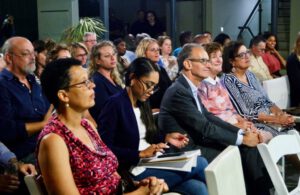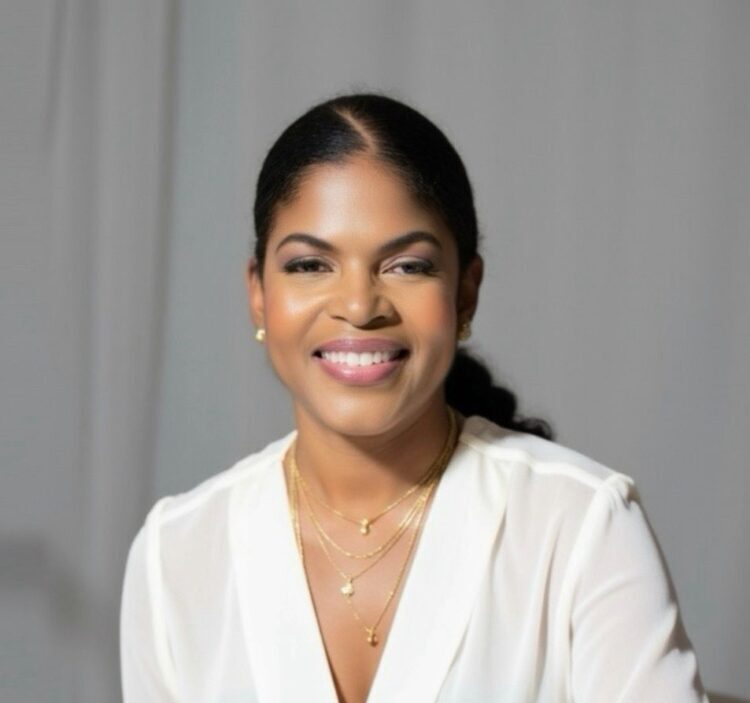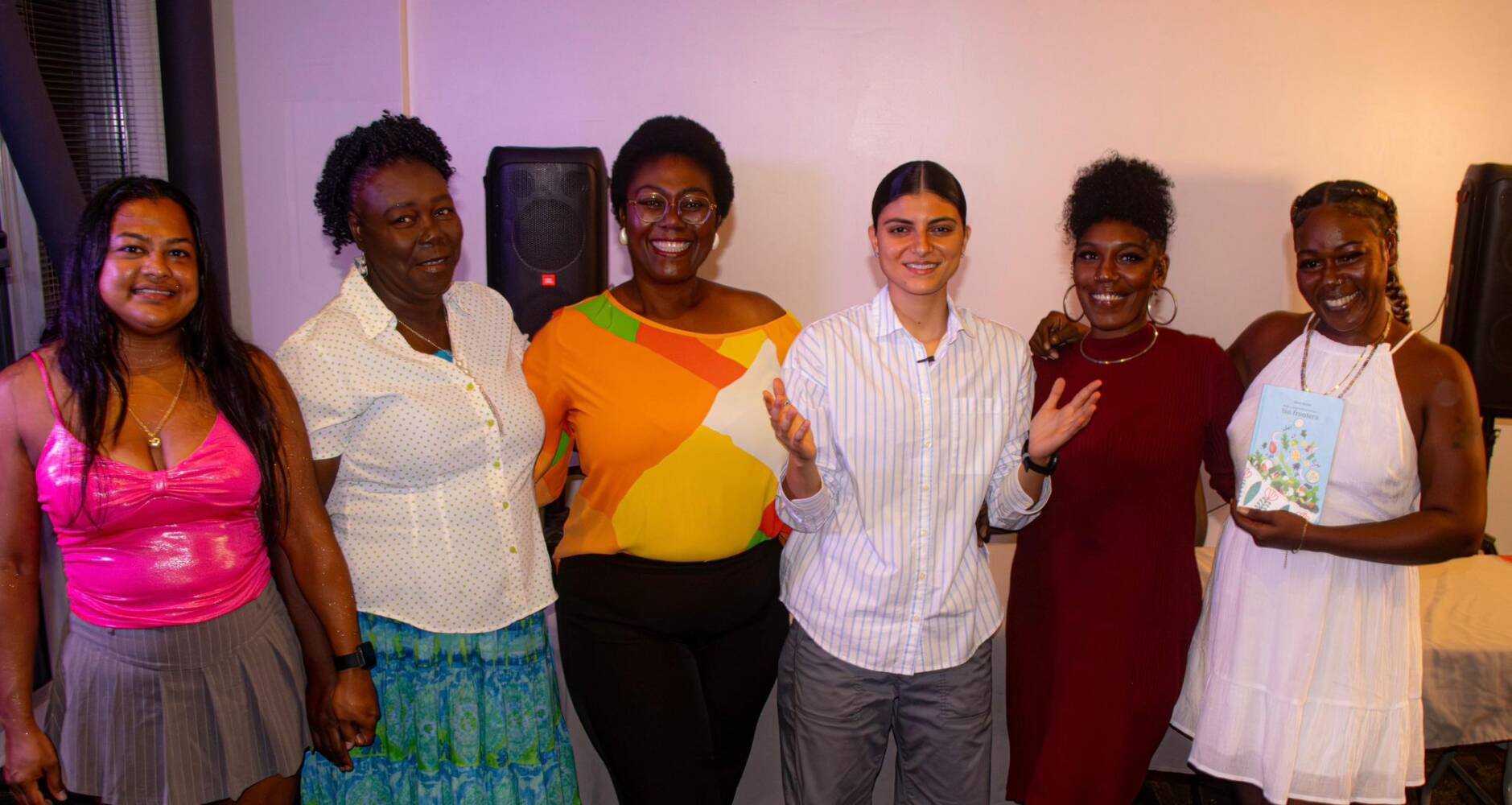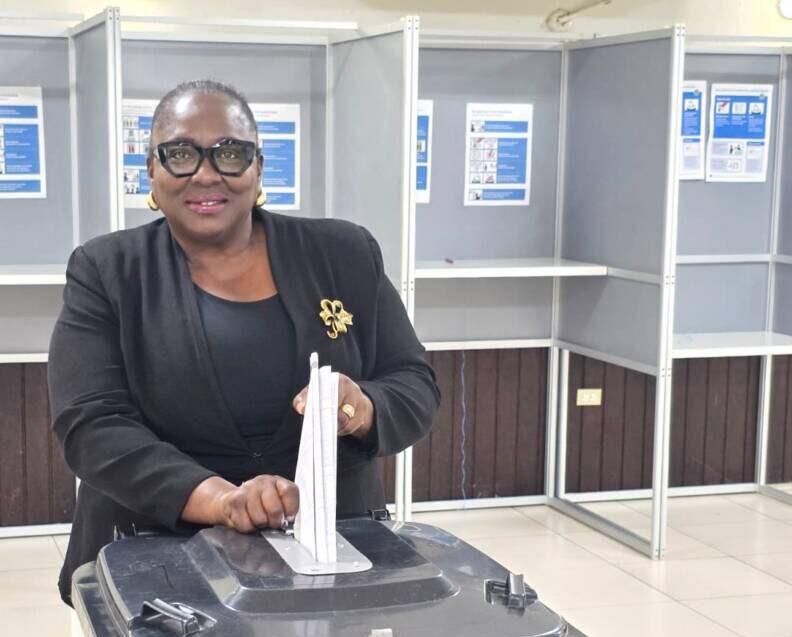WILLEMSTAD – In a small community such as Curaçao, it can be very hard to find independent journalists. Hard but not impossible. All the panelists agreed on this during the celebration of the fifth anniversary of Caribbean Network last Thursday on Curaçao.
Journalists Jo Anne Da Costa Gomez (TV Direct), Oscar van Dam (ANP, Extra, Paradise FM), Yves Cooper (freelance journalist), and Mavis Albertina (Nos Pais TV) all voiced their opinions about the journalistic integrity of the media on Curaçao during a panel discussion. And even though their opinions might differ a bit, they mostly agree with each other.
They acknowledge that it is hard to be objective on an island with only 160,000 inhabitants. The news will usually have an impact on friends, family, or acquaintances. Because all the news outlets are commercial ones, advertisers have major say in what gets broadcast or published. It’s also not unheard of that the owners of the corporation also work on the news floor, which can create conflicts of interest.
Good versus bad journalism
UNESCO and Transparency International mentioned such issues in reports presented in 2013 and 2016. During the event on Thursday it was mentioned that a lot of the recommendations had not been followed. The panelists – who all say they strive to be independent – dream of a better journalistic environment.
All except one: Cooper, who became an independent journalist for that exact reason. ‘Bad journalism’ has won according to him. And he has relegated himself to this fact. “The media depends on advertisement revenues. Journalistic media has sold its soul to businesses”, he emphasized at the event.

Picture: Elodie Kint
Uncensored
Van Dam generally agrees with that, but says that there are two sides to the story. “In my experience most journalists here work really hard to bring the news to the public. Maybe some of them are not as objective as others. But thankfully we as the press are allowed to talk about what we want. We’re not being censored.”
Albertina from Nos Pais TV is less pessimistic. Independent, objective journalism definitely has its place in Curaçao. “If you’re incorruptible and people trust you”, she adds as conditions. “People have to know that you’re telling the truth. And if that’s noticeable, then they will not doubt you. They’ll listen to what you have to say.”
Vicious cycles
According to Jo-Ann Da Costa Gomez it’s not that straight forward. She mentions a few vicious cycles ‘which the media on Curaçao can’t seem to escape’. Like the demand and supply of news – “People like it when reporters ask suggestive questions.” The press itself also played into this by reporting negatively on other news outlets. And then there’s social media, a perfect platform for fake news to spread.
Those vicious cycles have to be broken first according to Da Costa Gomez. She wholeheartedly agrees with one of the recommendations given by UNESCO in 2016: that journalists should unite. “To create a sort of ‘code of conduct’ and motivate other members of the press to abide by it.” With a ‘big resilient block’ that stands for journalistic integrity, we could see a major shift, says a hopeful Da Costa Gomez.
Network for journalists
|








